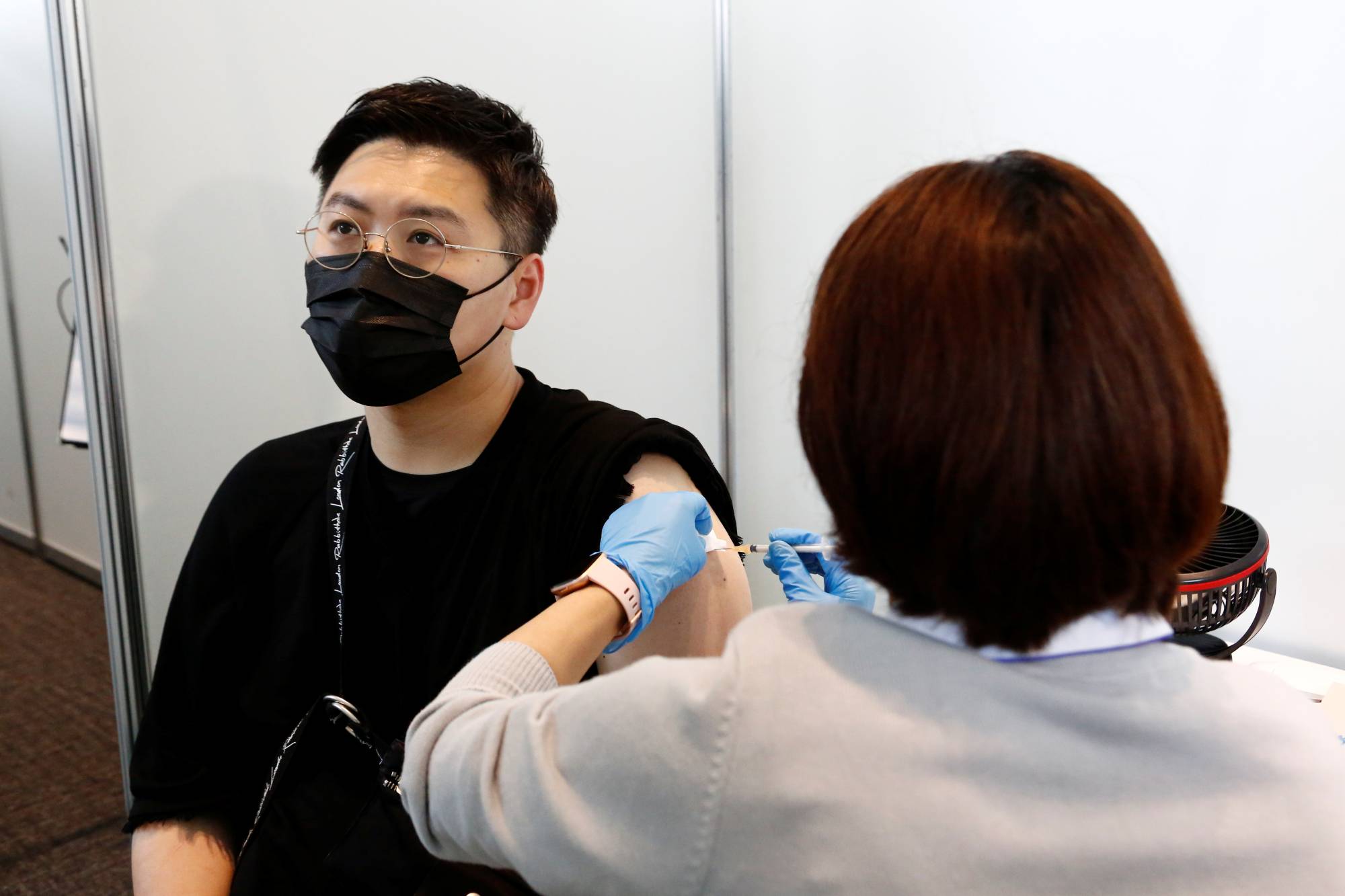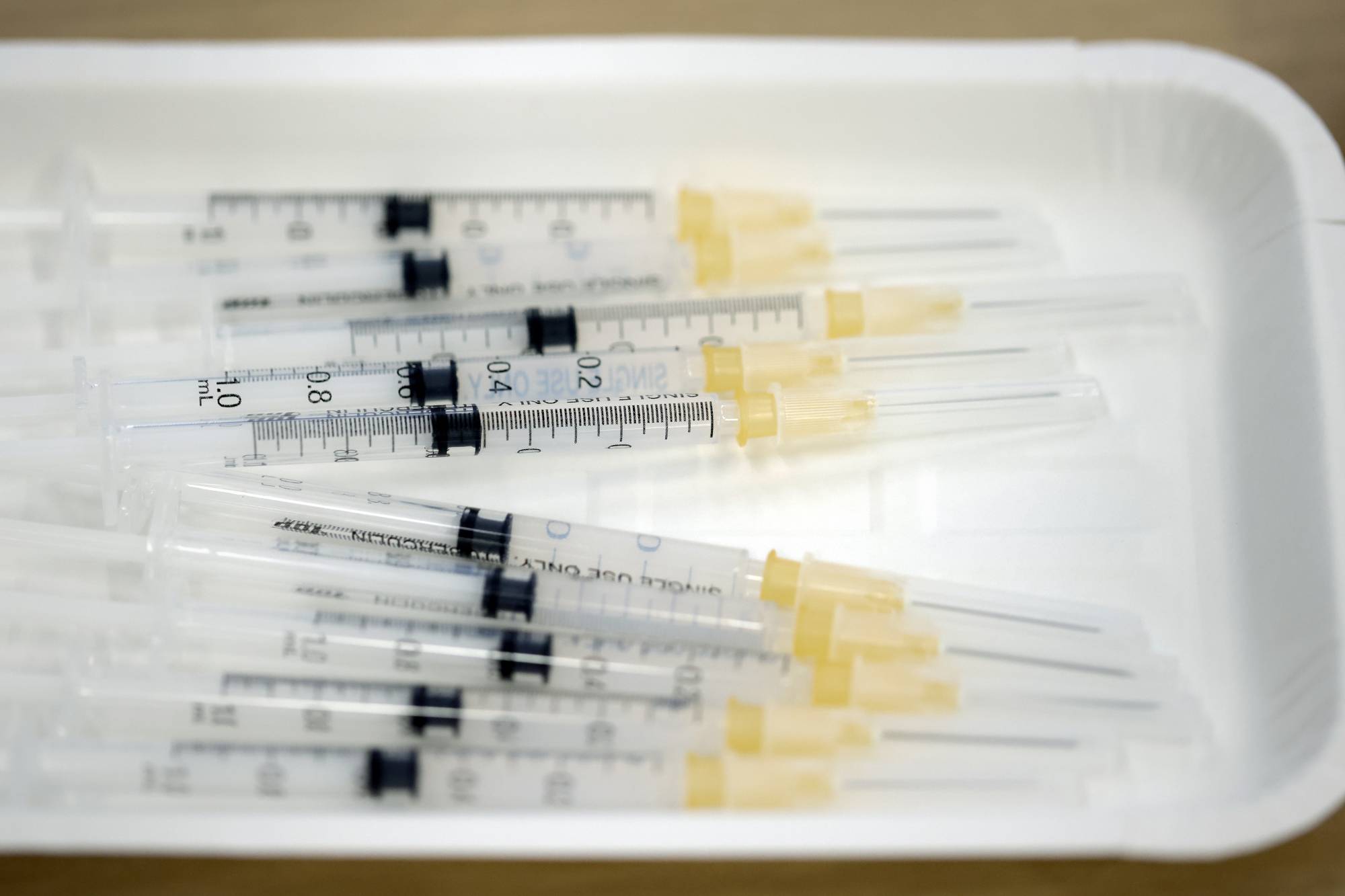As Japan plows ahead with its COVID-19 inoculation program, more vaccine-hesitant employees are voicing concerns over workplace discrimination and maltreatment stemming from their refusal to get jabs.
The issue of what is dubbed “vaccination harassment” has underscored the dearth of measures companies in Japan can take to require that employees get vaccinated or punish them for their decision to skip the shot.
The situation is markedly different in the U.S., where the federal Equal Employment Opportunity Commission (EEOC) has said companies can legally mandate their employees and new hires to be vaccinated against COVID-19. The only possible exceptions are cases involving disabilities and “sincerely held” religious beliefs.
The term “vaccination harassment,” known in Japanese as “wakuhara,” came into the spotlight in Japan after reports emerged of workers complaining of peer pressure and instructions from their bosses to undergo the shots.
Last month, the Japan Federation of Bar Associations released a report outlining the results of its two-day hotline in May catering to vaccine-related inquiries, such as from those feeling discriminated against at work or college for their refusal to get vaccinated.
The hotline handled 208 cases in total, with callers ranging from medical students and health care professionals to staff at nursing homes and company employees. Many cited their fear of side-effects, pre-existing health conditions or tendency to develop allergic reactions as the reason for their vaccine reluctance.
A number of them alleged they were being pressured or essentially coerced by their employers into getting shots, with some saying they were threatened with being furloughed, transferred or fired outright.
There were also nursing students who claimed to have been told they wouldn’t be allowed to take part in clinical practice, and therefore gain credits for the class unless they were vaccinated. Others cited their experience of feeling ostracized by colleagues who are generally hostile toward the unvaccinated, according to the report.

In an incident that mirrored these complaints, the labor ministry’s regional bureau in Hyogo Prefecture was contacted earlier this year by a nurse with a one-year contract who was pressured to quit after declining to get immunized, and told that those without jabs would be subject to furlough after April.
Taking on the case, the Hyogo labor bureau reminded the nurse’s hospital that under the labor contract law, midcontract termination of employment cannot be justified without a “compelling reason.” The bureau also cited a supplementary resolution to the revised preventative vaccination law that states that discrimination, bullying and workplace maltreatment against those not inoculated against COVID-19 is “unforgivable.”
The hospital eventually gave in, acknowledging it “lacked understanding” about vaccine policies at work, and maintained the nurse’s employment, Hyogo labor bureau official Shunji Hara said.
A similar controversy has been unfolding in the U.S., but on a much larger scale.
More than 100 staffers at the Houston Methodist Hospital in Texas, for example, filed a lawsuit in May against its vaccine policy obliging employees to be vaccinated against COVID-19, or be suspended and possibly sacked.
Last month, a federal judge ruled against nurse Jennifer Bridges, a lead plaintiff in the case, and dismissed her claim that her being fired for refusing a vaccine would amount to “wrongful” termination.
In the ruling, District Judge Lynn Hughes called the hospital’s policy a “choice made to keep staff, patients and their families safer,” according to media reports. “Bridges can freely choose to accept or refuse a COVID-19 vaccine; however, if she refuses, she will simply need to work somewhere else,” the judge said.
Compared with the U.S., where the federal agency EEOC has clarified it is not illegal for companies to require vaccination as a condition of employment, messaging from the Japanese government has been more nuanced.
In a Cabinet-approved statement, the government said in February that while companies are not prohibited from encouraging employees to be vaccinated, the decision of whether to get the shots should be entirely up to each individual.
It also said that “it is inappropriate to treat workers unfavorably due the fact that they have not been vaccinated,” such as through dismissals, salary cuts and transfers. The statement implied that steps such as making vaccination a condition of recruitment and asking job applicants about their inoculation status during interviews could be deemed inappropriate, too.
The health ministry also says that COVID-19 vaccination is not a mandatory condition for health care workers, although it is encouraged so as to reduce their risk of infection and make sure the medical system continues to function.



Legal experts largely agree that most companies in Japan cannot require their employees to get COVID-19 jabs.
“Since the act of being inoculated against COVID-19 is not considered mandatory in the first place, companies are in general without a good reason to oblige employees to get the jabs,” said Sho Kawasaki, a Tokyo-based corporate lawyer who primarily represents medical institutions.
Likewise, firing employees or slapping them with pay cuts over their refusal to get immunized could open companies up to the risk of lawsuits they have little chance of winning, Kawasaki said. Under the labor contract law, disciplinary actions and dismissals can be considered abuse of authority and invalidated if they are seen as “lacking reasonable grounds.”
For companies, transferring unvaccinated employees to positions that involve less physical exposure to clients or patients could be the furthest they can go.
“The basic understanding is that employers have the leeway to reshuffle personnel, so putting (those unvaccinated) in roles where interpersonal communication is less required, for example, would be one possible strategy,” Kawasaki said.
This kind of job reassignment, the lawyer said, is likely to be seen as more acceptable when applied to high-risk workplaces where “the emergence of virus clusters can be fatal,” such as hospitals and nursing homes.
Masaki Kosuge, a former labor standards inspector turned labor and social security attorney based in Kanagawa Prefecture, took a slightly dimmer view of the prospect of companies being legally able to relocate employees solely because of their disinclination to get vaccinated.
“If we’re talking about high-risk workers at hospitals, I think transferring them makes better sense because you could argue that someone’s refusal to get COVID-19 shots would acutely raise infection risks and have a significant impact on people around them,” Kosuge said, echoing Kawasaki.
“But whether the same logic for transfer would apply to unvaccinated employees with, say, administrative or accounting jobs is up to debate. ”
In a time of both misinformation and too much information, quality journalism is more crucial than ever.
By subscribing, you can help us get the story right.
SUBSCRIBE NOW


